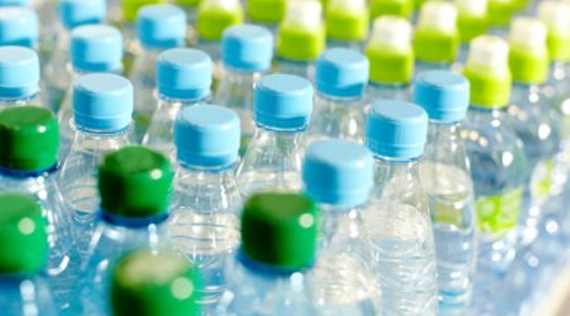
SEATTLE (Scrap Monster): A recent research conducted by Plastic Technologies, Inc. has shown that Polyethylene terephthalate (PET) water bottles designs have negative impact on recyclability. According to the study, the PET bottle manufacturers have made reasonable strides in meeting consumer expectations with regards to their convenience for use and their price. However, the lightweighting efforts need not necessarily contribute to minimization of carbon footprints, the study noted.
The most common strategy employed by many manufacturers to meet sustainability objectives has been to significantly lightweight the PET bottle. As per estimates, the weight of a 0.5 litre PET bottle has reduced to half when compared with early 2000’s. The study noted that many of the PET bottles failed to meet the generally-accepted recyclability guidelines during their design stage. The various factors that impacted package recyclability include bottle color, labels, glue/ink components and colorants.
The study was conducted in two phases. The first part of the study analyzed the effect of weight on performance, cost and environmental impacts. The second part examined the impact of other design decisions on PET bottle recyclability. The study included bottles of all leading global brands, which were taken from highest bottled water consumption regions including North America, Latin America, Europe and India.
According to the study conducted by Marcio Amazonas, Greg Fisher and Wei Zhang, some premium bottle brands preferred the use of heavier package, but a good majority was found concentrated on efforts to lower their bottle weights. The study revealed that performance of bottles was not directly related to the weight of the package. It is wrong to assume that lighter weight will have only positive benefits, the study noted. Incidentally, all bottle samples passed the standard performance specifications as per industry guidelines.
Majority of bottles tested and evaluated during the study showed significant variations from the guidelines outlined by the Association of Plastic Recyclers (APR). The study found that over 70% of US bottle samples and nearly 66% of European samples would find some issues during the recycling process. Also, all of the label samples resulted in color and clarity change during wash process. The study highlighted label bleed as the most common issue with all samples. It also found serious variation in substrates chosen for labels. Paper labels too were not free from issues, the study observed. PTI recommended that companies must be careful in making proper choice of ink and adhesive. According to them, use of soluble inks and glues is likely to add to bottle recyclability.
Plastic Technologies, Inc. (PTI) is recognized worldwide as the preferred source for plastic-based packaging development. Brand owners partner with PTI to create commercially-viable packaging structures and find solutions to challenging packaging issues. Extensive capabilities include package design, rapid prototyping, material evaluation, preforms, etc. In addition to managing commercialization projects for brand owners, PTI is also known as a technology innovator.
| Copper Scrap View All | |
| Alternator | 0.32 (0) |
| #1 Copper Bare Bright | 3.75 (-0.01) |
| Aluminum Scrap View All | |
| 356 Aluminum Wheels (Clean) | 0.73 (0) |
| 6061 Extrusions | 0.64 (0) |
| Steel Scrap View All | |
| #1 Bundle | 460.00 (0) |
| #1 Busheling | 480.00 (0) |
| Electronics Scrap View All | |